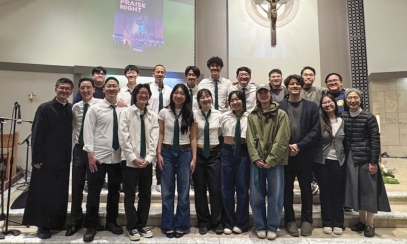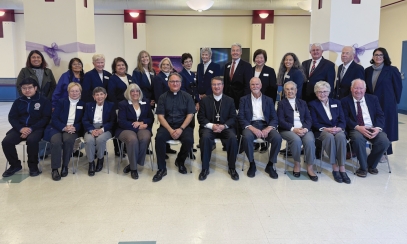
Pope Francis and the Ethics of AI
A Legacy Rooted in Human Dignity
A Legacy Rooted in Human Dignity
The death of Pope Francis has caused many of us to reflect on his enduring impact on our lives and our world. His papacy was filled with compassion, wisdom, and a deep commitment to the poor and marginalized. But one of his most forward-looking contributions was his courageous engagement with the ethical dimensions of Artificial Intelligence (AI). This article pays tribute to his leadership in this emerging field and explores the legacy he leaves behind for the global Church and particularly for us in Silicon Valley.
The death of Pope Francis has caused many of us to reflect on his enduring impact on our lives and our world. His papacy was filled with compassion, wisdom, and a deep commitment to the poor and marginalized. But one of his most forward-looking contributions was his courageous engagement with the ethical dimensions of Artificial Intelligence (AI). This article pays tribute to his leadership in this emerging field and explores the legacy he leaves behind for the global Church and particularly for us in Silicon Valley.
In January 2025, the Vatican issued a groundbreaking document titled Antiqua et Nova: On the Relationship Between Human and Artificial Intelligence. Drafted by the Dicastery for the Doctrine of the Faith and the Dicastery for Culture and Education with the Holy Father's endorsement, it lays out the Church’s theological and moral framework for approaching the age of AI. At its heart is a call for discernment and responsibility: AI must always serve the human person and promote the common good. Pope Francis adds, “AI should not be seen as an artificial form of human intelligence but as a product of it…It must never be mistaken for or substituted for the person.”
This insight could not be more relevant to us here in Silicon Valley, where the tools and platforms being created have the potential to reshape the way billions of people live, work, and interact. Technology developed here is not just local; it is global in scale and scope. The moral implications of our innovations demand thoughtful reflection, not only within corporations and labs but within communities of faith.
In response to this urgent need, I helped co-found a new partnership between Santa Clara University and the Vatican’s Dicastery for Culture and Education called the Institute of Technology, Ethics, and Culture (iTEC). Our mission is to foster ethical leadership and responsible innovation among those developing and deploying new technologies.
Together, we published Ethics in the Age of Disruptive Technologies: An Operational Roadmap. In response to the pope’s call for “a renewed wisdom of heart” in the age of AI, we designed this resource to help companies embed ethics into their structures, processes, and cultures — not as an afterthought, but from the ground up. It provides clear pathways for evaluating the risks, benefits, and social impact of emerging technologies, and proposes strategies for building a culture of ethical reflection within high-speed innovation environments.
As Bishop Paul Tighe, Secretary of the Dicastery for Culture and Education, has said: “Ethics cannot be added at the end of a process. It must shape every stage of design, development, and deployment.” He reminds us that technological systems, though sophisticated, are still expressions of human choices. The values we bake into them will either serve the common good or magnify inequality and harm.
While Antiqua et Nova is a Vatican document, Pope Francis himself often addressed the issue of AI directly. In his 2024 Message for the World Day of Peace, he wrote: “We need to ensure that the development of forms of artificial intelligence will ultimately serve the cause of human fraternity and peace… These tools can and must serve the best of human aspirations, not the worst of human impulses.”
As people of faith living in the epicenter of technological innovation, we are uniquely positioned to carry this mission forward. We must advocate for AI that is transparent, inclusive, and accountable. We must ensure that the fruits of progress uplift the poor, empower the excluded, and protect the vulnerable. May we honor Pope Francis not only with our prayers but with our commitment to build a technological future worthy of the dignity of every human person.
Father Brendan McGuire is pastor of Saint Simon.



